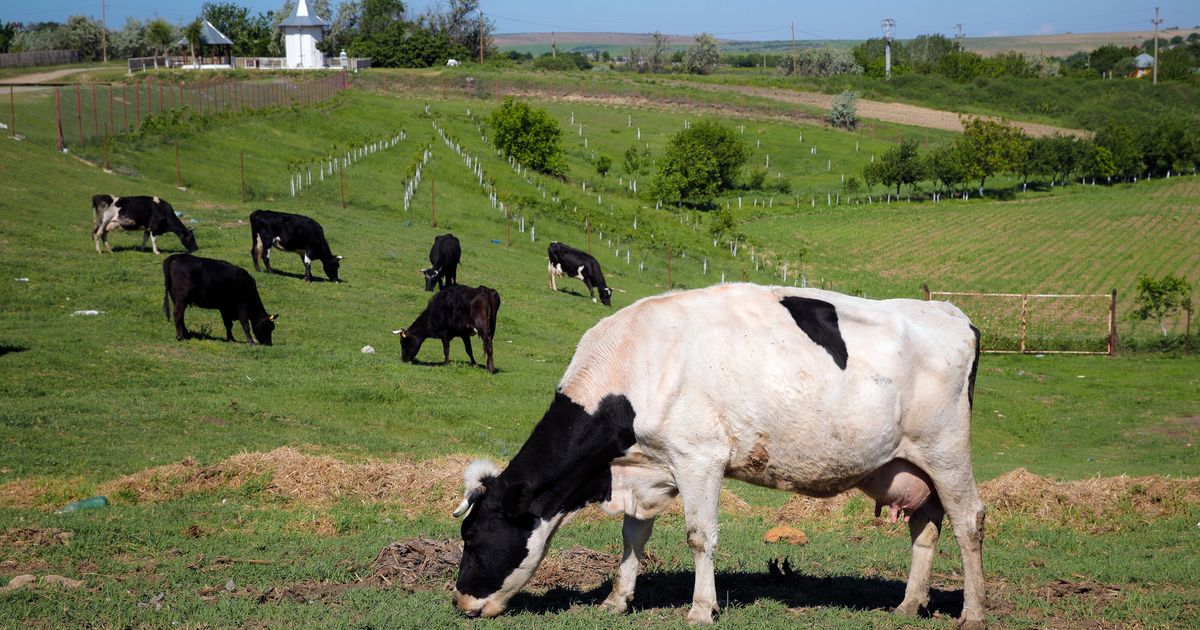New Zealand had passed a similar law due to take effect in 2025. However, the legislation was removed from the statute book on Wednesday after hefty criticism from farmers and a change of government at the 2023 election from a center-left ruling bloc to a center-right one. New Zealand said it would exclude agriculture from its emissions trading scheme in favor of exploring other ways to reduce methane.
Fucking farmers.
Good on Denmark!
Wait, WTF does “removed from the statute block” mean? Did they pass a new law repealing the old one, or did the new government just say “nah” and cross it out without a legislative vote?
The latter. Like fucking children acting out.
deleted by creator
deleted by creator
“That’ll cost ya!”
So…. Another gas tax. Fantastic.
This, but not ironically. (Please stop subsidizing gasoline!)
booooo
A step in a marginally better direction. Next step: ban animal agriculture.
We need to solve the problem, not just tax it. Animal exploitation, while reason enough to ban it on its own, is also a primary driver in climate change and zoonotic diseases. If you want to solve either of those existential problems, banning animal agriculture must be a part of that strategy.
a change of government at the 2023 election from a center-left ruling bloc to a center-right one
National is a right-libertarian party that campaigned on tearing down large portions of the government without adding anything.
The only way they could possibly be considered center right is if you move the scale so far right that Javier “Captain Ancap” Mileil (current president and demolisher of Argentina) is suddenly considered just your standard right winger rather than a completely unhinged fanatic.
The article is missing too many details:
- Why pigs? I thought by far the biggest offender were ruminants
- The article says “cows and pigs” but how does it apply to similar animals? I’ve recently had bison and elk but there are more? Or are they enough of an edge case to not worry about it.
- There are additives to cattle feed that reduce methane emissions: does the tax make any adjustment to encourage that?
For part two, we don’t breed bison and elk in Denmark. Pigs and Cows are pretty much the only animals we breed that we also eat. We have sheeps too, but not in the same proportion.
Having just read it, it comes down to a CO2 tax on animals in general and not just cows and pigs.
“En CO2-afgift på udledninger fra husdyr. Der indføres en afgift på 300 kroner per ton CO2 i 2030 stigende til 750 kroner per ton CO2 i 2035 med et bundfradrag på 60 procent. Den effektive afgift vil dermed udgøre 120 kroner per ton i 2030 stigende til 300 kroner per ton i 2035.”
Posted the actual Danish text in case someone wants to translate into their own native languages in case of specifics. I’m surprised the agricultural workers agreed to this.
Wow, that’s really good news for the environment if it is general to livestock, and that much more of a miss for the headline
Why pigs? I thought by far the biggest offender were ruminants
Someone correct me if I’m wrong, but I’m pretty sure the focus is on pigs rather than cows simply because we have a lot more of them. By a larger margin than the difference in emissions per animal.
deleted by creator



